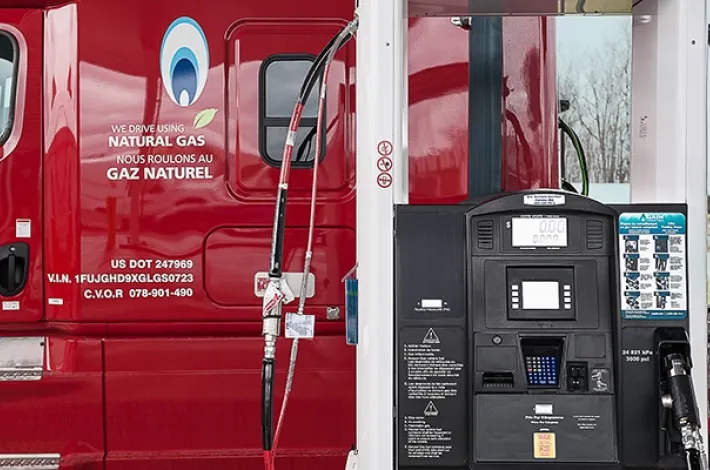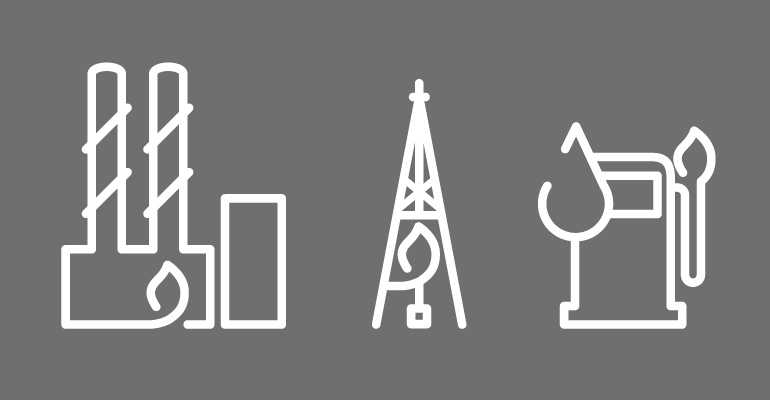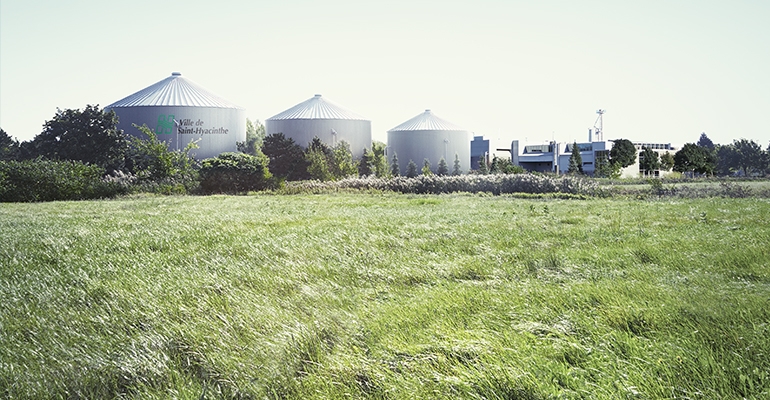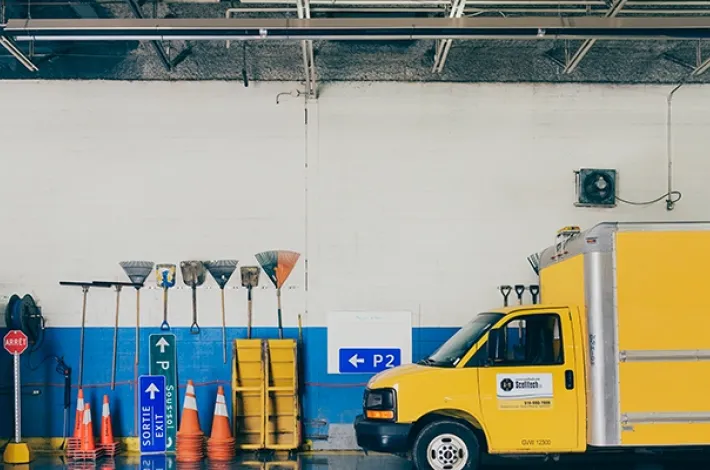
Heavy trucks: the secret to successful maintenance
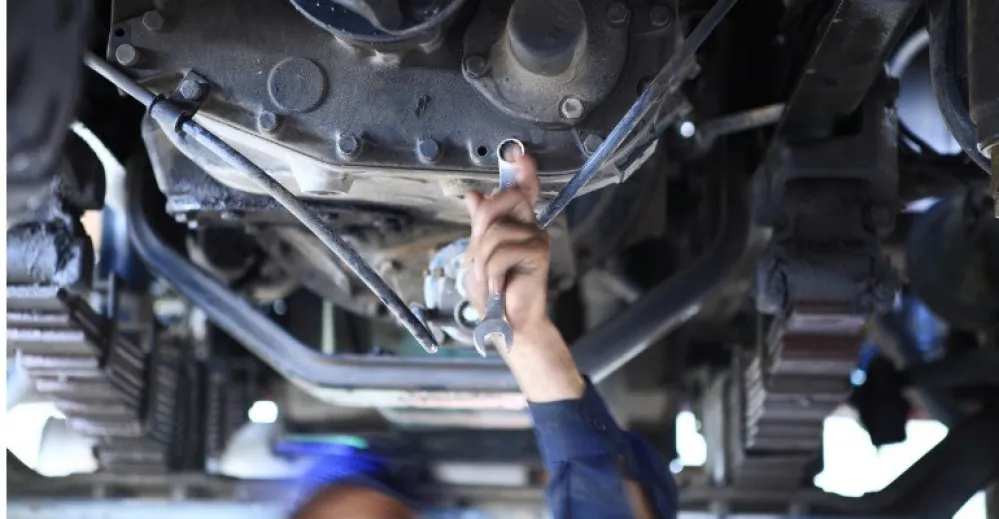
Proper maintenance of a heavy truck fleet is essential if you want to avoid mechanical problems, extend the useful life of the vehicles and boost the profitability of your fleet. Here, from Énergir’s fleet managers, are some helpful tips on getting the most out of your heavy trucks.
The SAAQ defines a “heavy truck” as a vehicle with a gross vehicle weight rating of 4,500 kg or more: buses, minibuses and tow trucks. By law, all are subject to mandatory periodic mechanical inspections except if their owner voluntarily exercises the SAAQ’s Preventive Maintenance Program (PMP).
“We are firm believers in preventive maintenance. It’s not just a matter of complying with the regulations. The PMP is the secret to success,” said Roger Constantin who has managed Énergir’s vehicle fleet for 16 years.
You can follow the PMP using a subcontracted agent but, depending on the circumstances, it can be far more practical and economical to set up your own program. To do so, the vehicle fleet owner has to have their PMP recognized by the SAAQ and must assume a number of responsibilities, including ensuring that their mechanics are qualified, affixing compliance stickers on the vehicles once a year, performing any necessary repairs and respecting the mechanical maintenance interval schedule.
Staff training: show your cards!
“Every mechanic we hire has to obtain a PMP competency card validating their compliance with maintenance methods,” explained Roger Constantin.
If a mechanic obtains a permanent card, Mr. Constantin recommends periodic refresher training.
“Even though it’s not mandatory, we re-do the training every three years because people can develop bad habits, methods can change, and occasionally the SAAQ modifies its program.”
Maintaining a heavy truck fleet requires several areas of expertise, especially with a fleet of 70 varied vehicles, as is the case at Énergir. This is why the company also requires its mechanics to obtain a CPA Québec card involving an exam.
Other specific training is necessary when the company buys trucks from a new manufacturer, or for equipment installed on the vehicles such as articulated cranes, compressors and auxiliary heating units. This is why it’s also important to keep abreast of the various training courses required when new projects are initiated involving the vehicle fleet.
Maintenance, an investment that pays off
“Preventive maintenance helps avoid unplanned stops and optimizes the availability rate. This means considerable savings at the end of the day,” said Roger Constantin. “So it’s well worth establishing comprehensive maintenance plans for all the different types of vehicles and equipment. These plans can be developed with help from the manufacturers who are able to make useful recommendations.”
Careful with the sporty driving!
Aside from the maintenance program, drivers should inspect their trucks daily in accordance with a clearly established routine. If minor repairs or fixes are needed they can be scheduled for the following day. Anything major should be repaired immediately.
Drivers, through their driving style, also play a role in their vehicle’s lifespan. “If they brake a lot or accelerate and turn quickly, they will cause faster wear and tear,” cautioned Mr. Constantin.
At what point should a truck be replaced?
How do you decide when to replace a truck or if can remain in service several more years? In Mr. Constantin’s opinion, it comes down to cost.
“When a vehicle is approaching the end of its life cycle, we calculate how much it would cost us to upgrade it so that it could last a few more years, and we do an analysis to determine at what point the maintenance costs will increase. If this exceeds 50% of a new vehicle’s purchase price, it’s not worth it. But in some cases, this calculation has allowed us to prolong a truck’s lifespan by 8 to 10 years,” he added.
The natural gas option is no more complicated than a fleet running on diesel
Good news for trucks on natural gas: maintenance isn’t any more complicated than for diesel vehicles. All that’s required is some additional training to ensure that the mechanics have the proper qualifications.
“The workings of a natural gas engine are no more complex or fickle, but the right certificates have to be obtained from Emploi-Québec before you do that kind of maintenance,” noted Roger Constantin, who personally manages about 15 heavy trucks in Énergir’s fleet that run on a diesel-CNG blend.
“So there’s an additional cost in terms of training, but it’s quickly offset by the savings achieved in fuel refuelling. Not to mention the benefits for the fleet’s environmental performance.”
Also, in the case of a 100% natural gas engine, there are even long-term maintenance savings over the vehicle’s useful life. Since natural gas is cleaner than diesel, the engine doesn’t need a complex antipollution system featuring urea injection or particulate filters. Savings are sure to follow since natural gas mechanical workings are more reliable due to their simplicity. This means fewer accidental breakdowns and fewer trucks unnecessarily sidelined for unplanned repairs.
You may also like...

